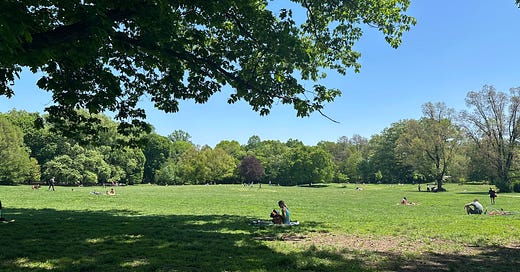I listened to the Bad on Paper podcast episode “Life After Rejection (Spoiler: It’s Pretty Good!)” about a month ago and have been thinking about it at least once a week since. It’s worth listening to the whole episode. The co-hosts Becca Freeman and Olivia Muenter interview two women, author Andrea Bartz and writer/founder Azora Zoe Paknad, about their attempts, their failures, and their successes after.
In her interview, Andrea says: “To live a creative life is to get rejected almost constantly.” I really appreciated a lot of sentiments both women express about trying/failing/getting back up, but this line has stuck with me the most. Because it’s true! But most creatives, most writers, don’t talk about their attempts that didn’t pan out. The books written in between their bestsellers, the fellowships they didn’t receive, the awards they didn’t receive.
Bestselling author M.L. Rio posted this note recently:
Rejection is normal and fine and not a final judgment on your work.
I think we could all use this reminder as we deal with the publishing industry’s messy, limping transition into whatever is coming next.
I also think we could all use this reminder about Goodreads. I know everyone has feelings about Goodreads and it’s some sort of ‘necessary evil’ within the industry. But you, as an author, do not have to look at Goodreads reviews of your book. Think about Google reviews, or Yelp. When you have a perfectly pleasant experience, do you post a review? Probably not. People post reviews when they have extreme experiences. I promise that there are many, many people who have read your book and found it enjoyable, thought-provoking, pleasant, and then continued on with their busy lives without taking time to complain about why the book wasn’t a different book on Goodreads.
Writers: don’t let a failure, a rejection, a disappointment prevent you from doing what you love.
Just write another book
Sometimes when I’m participating in some sort of conference or agent-advice-giving forum, I speak with writers who tell me they’ve been querying their novel for years.
I spoke at an MFA program today so I’m also going to highlight this post, because many of them asked about short story collections:
Short, sweet, and sometimes difficult to sell
Literary fiction writers are familiar with hearing, “short story collections are hard to sell.” Something I was wondering recently is, how many unagented writers submitting their story collections to agents know that publishers financially value literary short story collections less than novels? I’ll discuss “hard to sell” and its caveats below the paywall, but putting that aside: when a literary story collection does sell to a publisher, that publisher’s P&L








So cool to open this email and see the BOP shoutout. So glad you loved the ep - I did too!!